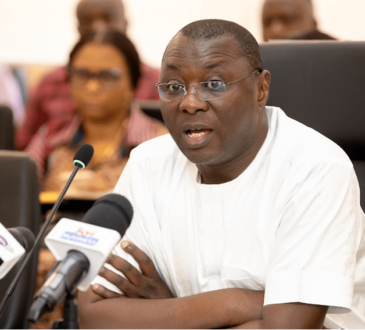
The Bank of Ghana (BoG) has clarified that its recent loss of GH₵10.50 billion for the financial year ending 2023 does not signify a failure in policy effectiveness.
The Central Bank attributed this substantial loss primarily to GH₵8.3 billion spent on open market operations, a significant increase from the GH₵1.7 billion spent in 2022. This expenditure was necessary to manage liquidity in the economy and control inflation.
In an interview with Citi Business News, Bernard Otabil, Director of Communications at the Central Bank, emphasized that the BoG’s actions to curb inflation underscore their commitment to economic stability, despite the financial loss.
“Central banks pursue national welfare, not profits. From a peak of 54.1 per cent at the end of December 2022, headline inflation more than halved to 23.2 per cent by the end of December 2023,” he stated.
The financial statement revealed that the cost of open market operations in 2023 was more than five times higher than in 2022, reflecting the BoG’s intensified efforts to reduce inflation by mopping up excess liquidity from the economy.
Additionally, the relatively lower charge on the revaluation loss and exchange difference account, which amounted to GH₵4.27 billion, also significantly contributed to the overall loss.
Mr. Otabil highlighted that the 2023 financial statements reflect the Central Bank’s dedication to price stability and the overall well-being of Ghanaians.
“The Bank of Ghana is committed to policies aimed at achieving a stable level of inflation, in line with its medium-term target of 8 per cent, with a tolerance of plus or minus 2 percentage points,” he explained.
He further noted that bringing inflation down to the target level is crucial for sustainable economic growth and long-term prosperity in Ghana.
“Achieving low and stable inflation helps promote exchange rate stability under a floating currency regime, ultimately increasing the welfare of the Ghanaian population,” he added.







